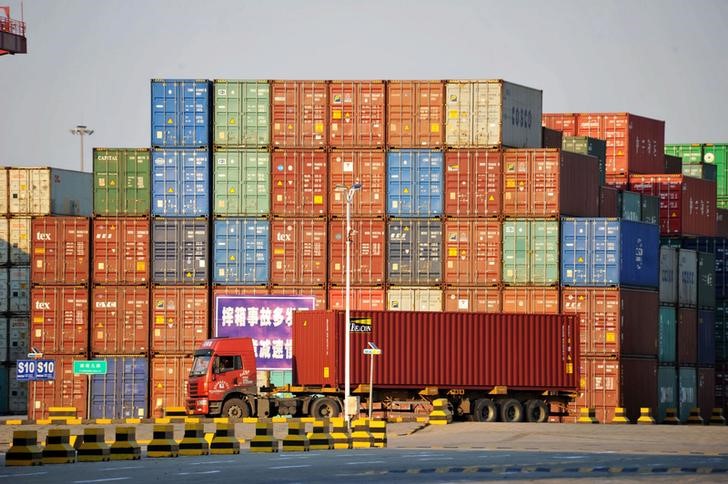(Bloomberg) -- Sign up here to receive the Davos Diary, a special daily newsletter that will run from Jan. 20-24.
The International Monetary Fund predicted the world economy will strengthen in 2020, albeit at a slightly slower pace than previously anticipated amid threats related to trade and tensions in the Middle East.
Global growth will accelerate to 3.3% from 2.9% in 2019, marking the first pickup in three years, the fund said Monday. Both figures are down compared with forecasts in October, and it marks the IMF’s sixth straight reduction for 2019.
The report, however, contains a sense of modest hope, noting that risks are “less skewed” toward negative outcomes. That outlook will be keenly discussed this week at the World Economic Forum’s annual meeting in Davos, Switzerland. The sense that global growth is stabilizing is shared by many economists, as well as some central banks.
For the IMF, which sees growth accelerating to 3.4% in 2021, the positives include signs that the slump in manufacturing and global trade is bottoming out, “intermittent” good news on U.S.-China trade talks and accommodative monetary policy.
The Fund even quantified the impact of central bank’s efforts to shore up growth last year. It said growth in 2019 and 2020 would be 0.5 percentage point weaker without their stimulus push.
“Globally the big story is this extraordinary pivot by central banks in 2019,” BlackRock (NYSE:BLK) Vice Chairman Philip Hildebrand said on Bloomberg Television. “What’s been holding this back or offsetting this is the trade risks, the geopolitical risks, so if we can pull back on those, we should see global growth edging up.”
The IMF made modest downgrades to 2020 projections for the U.S. and the euro area, while India’s forecast was slashed by more than a percentage point. The prediction for global trade volume growth was cut to 2.9% from 3.2%, though that would still be far better than last year’s 1%.
While risks have eased, the IMF was clear that that there’s still plenty to worry about. Progress in trade talks is stop-start, simmering U.S.-Iran tensions could hit oil supply, and there’s also social unrest and weather-related disasters.
“Few signs of turning points are yet visible in global macroeconomic data,” it said. “The risk of protracted subpar global growth remains tangible despite tentative signs of stabilizing momentum.”
The U.S.-China trade pact, signed Jan. 15, reduces the cumulative negative effect of the battle on output over 2019 and 2020 to 0.5%, IMF Chief Economist Gita Gopinath said. The previous estimate was 0.8%, or $700 billion, with tariffs accounting for a third and the rest from companies not investing, IMF Managing Director Kristalina Georgieva said in Washington Friday.
“A trade truce is not the same as trade peace,” Georgieva said. Completion of the first phase of the deal mean a “shrinkage of the negative impact, but not an eradication.”
Other Forecasts
- The fund held or reduced its estimates for most of the world’s biggest economies for 2020, with Japan a notable exception. It raised the outlook to 0.7% from 0.5%, reflecting the anticipated boost from stimulus measures undertaken in December.
- The fund raised China’s estimate by 0.2 percentage point to 6%. The phase one trade deal is likely to alleviate near-term cyclical weakness, though unresolved disputes on broader U.S.-China economic relations “will continue weighing on activity.”
- The 2020 estimate for the U.S. was lowered by 0.1 percentage point to 2%, and 2021 held at 1.7%.
- India’s downgrade was because domestic demand has slowed more sharply than expected amid stress in the non-bank financial sector and a decline in credit growth, the fund said.
